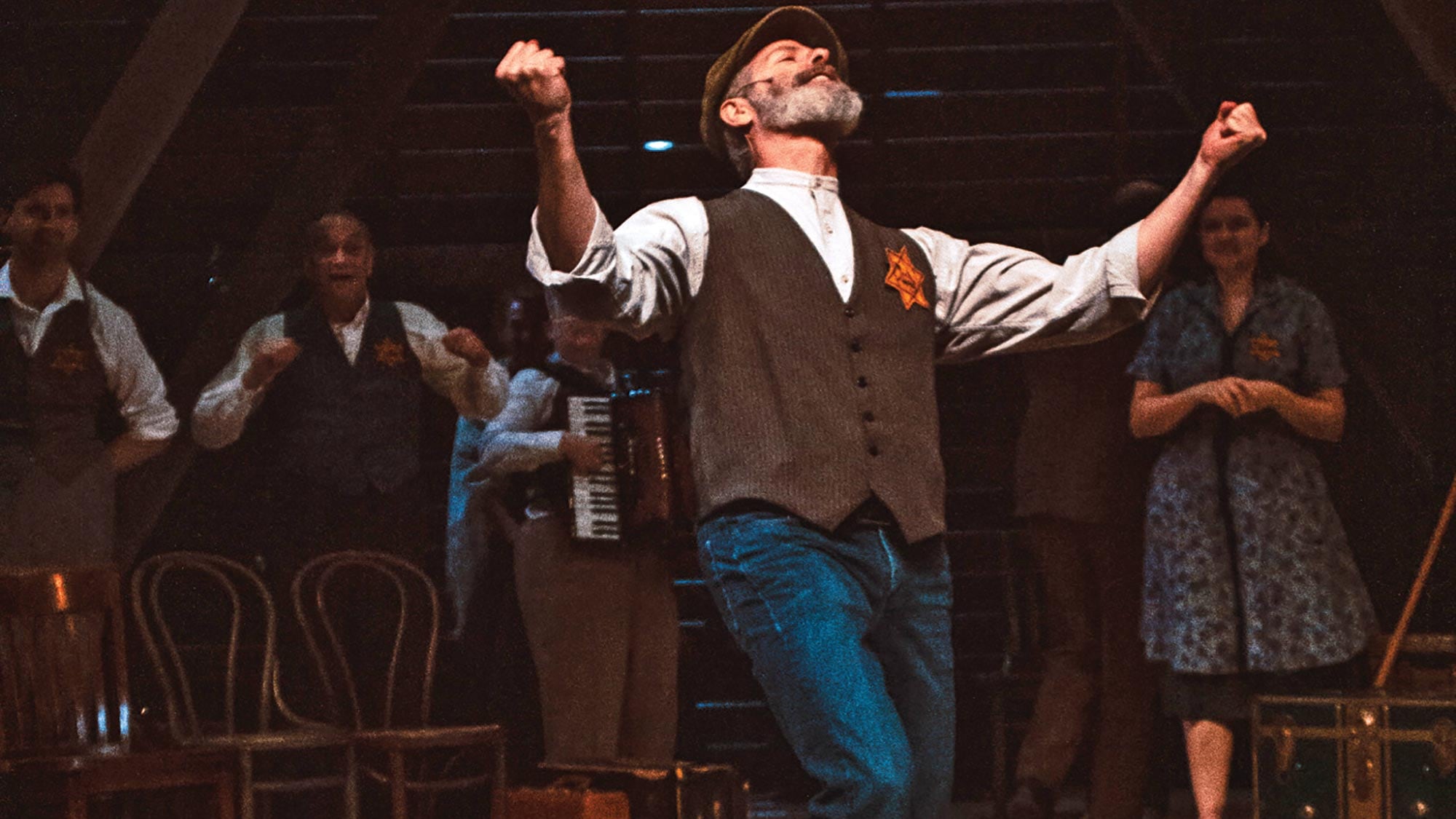"Take the holy scroll along with you! I don't need it anymore!"
That melodramatic cry concludes God of Vengeance, Polish-Jewish writer Sholem Asch's 1906 Yiddish play about a Jewish brothel owner whose daughter falls in love with a female prostitute. It sums up the style of the theatrical work, which caused a scandal with its 1923 Broadway debut, although that alarm sounds ludicrous by today's standards—not to mention fetishistic in its depiction of queer women.
Paula Vogel's 2015 play, Indecent, persuasively argues that God of Vengeance is more than the sum of its silliest moments. With a backstage narrative that comprises several decades, the Profile Theatre/Artists Repertory co-production occasionally feels overstretched, but that hasn't stopped director Josh Hecht and his wonderful cast from capturing the play's moving exploration of the original piece within the context of its notoriety and the history of Judaism itself.
The drama of Indecent is driven by a question asked by Asch (Joshua J. Weinstein): "Why must every Jew onstage be a paragon?" God of Vengeance is his defiant answer. Condemned by bigots and prudes, the play nonetheless finds a worldwide audience and even a fan in Asch's wife, Mathilde (Miriam Schwartz), who praises him for creating what she sees as a movingly pure portrait of two women in love. Less enthralled is a rabbi (Gavin Hoffman), who contacts the police during its run at the Apollo Theatre, a decision that leads to the production's cast being arrested for obscenity.
Indecent displays a cheeky attitude toward God of Vengeance, especially during a montage of the original's final scene—in which the deranged Yekel banishes his daughter Rifkele to his brothel—is replayed so many times it begins to seem almost as goofy as it is tragic. Vogel clearly reveres Asch (she has spoken of her admiration for his play), but she's not above mocking him with a twinkle in her eye.
Yet Indecent gradually grows more anguished. Embarrassed by his accent after moving to America, Asch retreats from public life, sequestering himself and allowing his work to be sundered. His agony is also deepened by the Holocaust—he mourns both the degradation of his work and the devastation of his people, declaring, "Six million have left the theater."
Weinstein is compelling as both the younger Asch—whose topless undulating in Berlin makes for a mesmerizing display of sensual joy—and his older counterpart, who weeps into Mathilde's arm when they're not bickering. Like most of the cast, Weinstein embodies multiple characters, making Indecent less a biography of a playwright than a tapestry of the people he affected, particularly the actors who gave life to God of Vengeance.
It's impossible to fully describe Indecent in a single review. The scope is staggering, and it's hard not to wonder whether the play would have achieved greater intimacy if it had focused on a shorter span of time. Vogel leapt nimbly through many years in her 1997 Pulitzer-winning drama, How I Learned to Drive, but that play stuck mostly to the perspective of one woman, whereas Indecent encompasses a vast ensemble.
But a flawed Paula Vogel play is still a Paula Vogel play. Like How I Learned to Drive, Indecent hits you with a blast of nasty humor, then steadily allows sentiment to bubble to the surface. Vogel may joke about Asch, but you begin to understand the depth of her passion for his writing late in Indecent, when we see two actresses (Schwartz and Jamie M. Rea) act out a love scene from God of Vengeance, their white dresses and dark hair awash in the rain that falls on the center of the stage.
It's a sublime moment that highlights the tenderness behind Asch's dated dialogue. God of Vengeance is briefly described in Indecent as "a little Jewish play," but Vogel shows us it was never little at all. She reminds us that by allowing his Jewish characters to be more than paragons, Asch allowed them to be human.
SEE IT: Indecent is at Lincoln Performance Hall, 1620 SW Park Ave., profiletheatre.org. 7:30 pm Tuesday-Friday, 2 and 7:30 pm Saturday, 2 pm Sunday, through March 8. No 2 pm performance Sunday, March 8; 7:30 pm performance instead. $5-$40.
